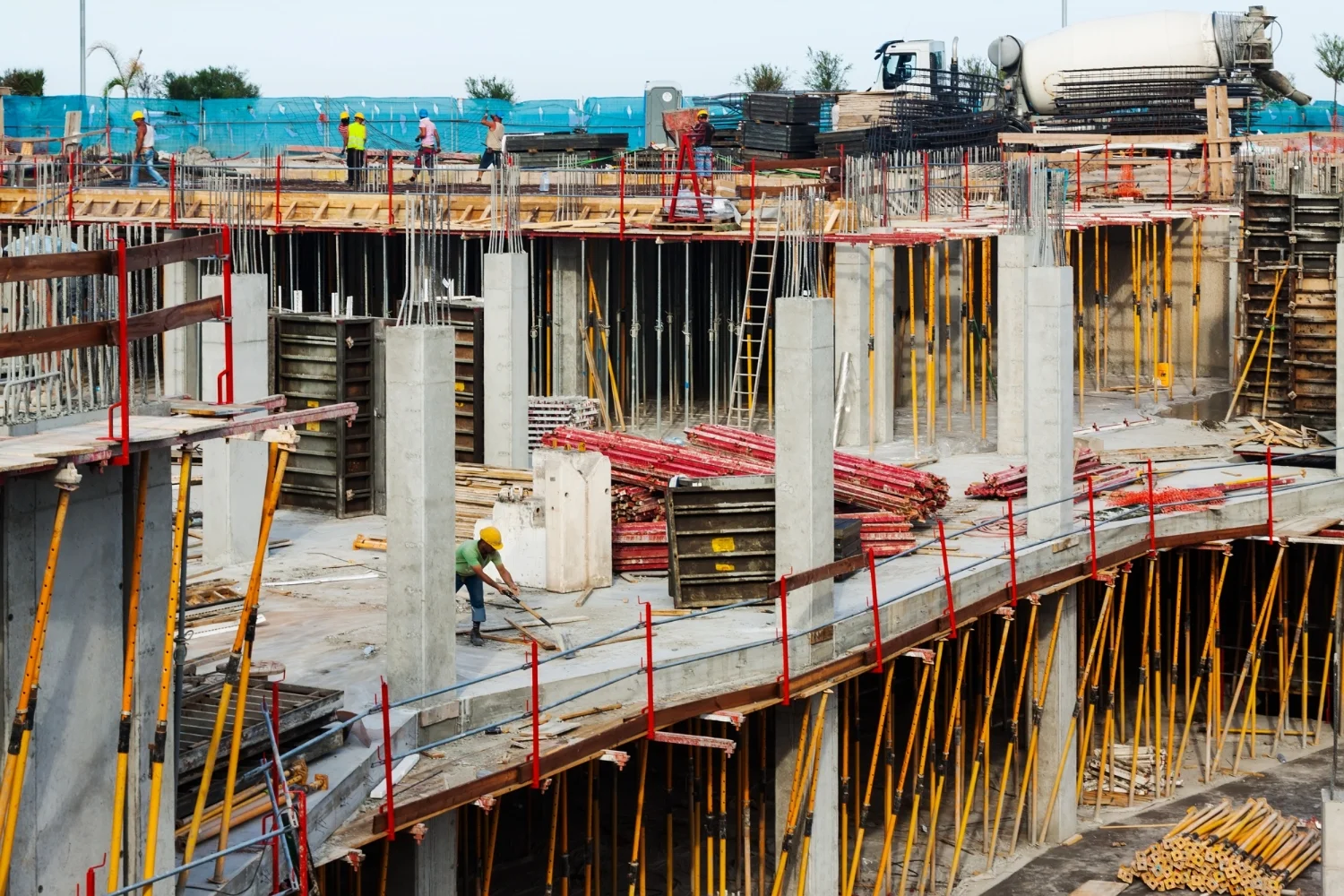Underground construction, whether for mining, tunneling, or infrastructure projects, requires careful attention to safety and structural integrity. Two key solutions that have transformed the industry are cable grout and Tunnel Guard systems. These technologies work together to stabilize rock formations, secure reinforcement systems, and protect workers and equipment in high-risk environments.
This comprehensive blog explores the applications, benefits, and best practices for using cable grout and Tunnel Guard solutions in modern underground construction, providing insights for engineers, contractors, and project managers looking to enhance safety and durability.
Understanding Cable Grout
1. What is Cable Grout?
Cable grout is a specialized cementitious or chemical mixture used to fill voids around prestressed rock bolts, cable anchors, and other tensioned reinforcement systems in tunnels and underground structures. Its primary function is to bond cables to the surrounding rock or concrete, distributing loads evenly and preventing movement or slippage.
2. Types of Cable Grout
-
Cementitious Grout:
-
Made from cement, water, and fine aggregates.
-
Provides high compressive strength and long-term durability.
-
Commonly used for large-scale tunnels and high-load applications.
-
-
Chemical or Resin Grout:
-
Fast-setting, often two-component epoxy or polyurethane systems.
-
Ideal for urgent reinforcement or when immediate load-bearing is required.
-
Provides superior adhesion in challenging conditions, including wet or fractured rock.
-
3. Benefits of Cable Grout
-
Load Transfer: Ensures that prestressed cables or rock bolts transfer loads effectively to the surrounding rock.
-
Enhanced Stability: Reduces movement in fractured or weak rock zones.
-
Durability: Resistant to chemical attack, moisture ingress, and temperature variations.
-
Safety: Minimizes the risk of rock falls and collapses by stabilizing critical zones.
-
Versatility: Suitable for tunnels, mining shafts, and underground chambers of various sizes.
Cable grout is a foundational element for high-stress underground projects, especially when used in conjunction with modern reinforcement systems.
Understanding Tunnel Guard
1. What is Tunnel Guard?
Tunnel Guard is an advanced protective system designed to reinforce tunnel walls, ceilings, and underground passages. It provides mechanical support and serves as a barrier against rock falls, debris, and environmental stresses. Tunnel Guard systems typically consist of:
-
High-strength steel or composite mesh
-
Anchoring systems, including bolts and cables
-
Protective coatings and shotcrete layers for additional support
2. Key Features of Tunnel Guard
-
Rapid Installation: Modular systems and pre-fabricated components allow quick deployment.
-
Versatility: Can be installed on vertical, overhead, and irregular surfaces.
-
Durability: Engineered to withstand high loads, vibrations, and environmental challenges.
-
Safety Compliance: Meets regulatory standards for underground construction and mining safety.
-
Integration: Works seamlessly with prestressed cables, rock bolts, and other reinforcement systems.
Tunnel Guard is especially critical in high-risk zones, such as deep mining tunnels, transportation tunnels, or older underground infrastructure.
How Cable Grout and Tunnel Guard Work Together
Combining cable grout and Tunnel Guard creates a comprehensive underground support system that enhances structural stability, load distribution, and worker safety.
1. Reinforcement of Tunnels
After excavation, Tunnel Guard systems are installed to provide immediate surface support. Prestressed cables or rock bolts are then anchored, and cable grout is injected to bond them to the surrounding rock. This combination ensures that:
-
Loads are evenly distributed
-
Weak or fractured zones are stabilized
-
The risk of rock falls is minimized
2. Load Transfer and Stress Management
Cables alone cannot distribute loads effectively in fractured or unstable rock. Cable grout transfers stresses along the length of the bolt or cable into the surrounding rock, while Tunnel Guard provides a protective layer to prevent surface collapse.
3. Long-Term Stability
By integrating Tunnel Guard with properly grouted cables, underground structures achieve long-term durability. The system resists deformation, vibration, water ingress, and chemical attack, ensuring safety for years.
Applications of Cable Grout and Tunnel Guard
1. Mining Operations
-
Stabilization of high-stress mining tunnels
-
Protection against rock falls in deep shafts
-
Integration with shotcrete lining and rock bolts
2. Civil Engineering Projects
-
Urban metro and railway tunnels
-
Highway underpasses and utility tunnels
-
Underground parking facilities
3. Emergency and Safety Installations
-
Rehabilitation of deteriorating tunnels
-
Reinforcement in seismic or high-vibration zones
-
Temporary or permanent support during construction
Factors Influencing Cable Grout and Tunnel Guard Selection
Choosing the right materials and systems requires careful consideration of project-specific factors.
1. Geological Conditions
-
Fractured or weak rock requires higher-strength grout and denser Tunnel Guard mesh.
-
Water ingress may necessitate chemical or fast-setting grouts.
2. Load and Stress Levels
-
High-stress zones demand prestressed cables with strong grout for effective load transfer.
-
Tunnel Guard thickness and mesh density are adjusted according to anticipated loads.
3. Tunnel Geometry
-
Vertical or irregular surfaces may require modular Tunnel Guard systems for efficient installation.
-
Cable grout formulation must accommodate complex anchor angles and spacing.
4. Environmental Factors
-
Temperature, humidity, and chemical exposure impact the choice of grout and protective coatings.
-
Some projects require grouts that resist corrosion, water penetration, and chemical degradation.
Benefits of Professional Installation
1. Enhanced Safety
Professional contractors ensure correct installation of Tunnel Guard systems and proper injection of cable grout, reducing risks of rock falls and structural failure.
2. Efficiency and Speed
Experienced teams can deploy modular Tunnel Guard systems rapidly and inject cable grout accurately, minimizing downtime and disruptions in underground operations.
3. Long-Term Cost Savings
Investing in professional-grade Tunnel Guard and cable grout reduces the need for frequent maintenance, emergency interventions, and structural repairs.
4. Compliance and Certification
Certified contractors guarantee adherence to safety standards, quality specifications, and regulatory compliance, providing peace of mind to project managers and stakeholders.
Best Practices for Cable Grout Application
-
Proper Hole Preparation: Ensure drilled holes for cables are clean and free of debris.
-
Correct Mix Design: Use cementitious or chemical grouts tailored to project requirements.
-
Controlled Injection: Apply grout under pressure to fill voids completely and eliminate air pockets.
-
Curing and Setting: Allow adequate curing time to achieve maximum bond strength.
-
Quality Monitoring: Inspect grout integrity and cable anchorage to ensure proper installation.
Best Practices for Tunnel Guard Installation
-
Pre-Installation Assessment: Evaluate tunnel geometry, rock stability, and load requirements.
-
Anchoring and Support: Install bolts, cables, or anchors according to design specifications.
-
Mesh Placement: Ensure Tunnel Guard mesh fits snugly against the tunnel surface.
-
Protective Coating: Apply shotcrete or other coatings to enhance durability.
-
Regular Inspection: Conduct periodic inspections to detect wear, corrosion, or damage.
Partnering with Trusted Providers
Choosing reputable suppliers and contractors is critical for successful installation and long-term performance. Altecrete provides:
-
High-quality cable grout and Tunnel Guard solutions
-
Technical guidance on material selection, mix design, and installation
-
Experienced teams for installation and quality assurance
-
Compliance with industry standards and safety regulations
Partnering with trusted providers ensures that underground projects are completed safely, efficiently, and sustainably.
Conclusion
Ensuring the safety and stability of underground construction requires a combination of advanced materials and expert installation. Cable grout secures prestressed cables and rock bolts, distributing loads effectively and stabilizing weak rock zones. Tunnel Guard provides protective reinforcement for tunnel walls and ceilings, preventing rock falls and structural collapse.
When used together, these solutions offer a comprehensive approach to underground support, enhancing durability, safety, and efficiency. By working with experienced providers like Altecrete, project managers and engineers can achieve long-lasting, reliable outcomes in both mining and civil infrastructure projects.
Frequently Asked Questions (FAQs)
1. What is the main purpose of cable grout?
Cable grout anchors prestressed cables or rock bolts in tunnels and underground structures, ensuring load transfer and stability.
2. How does Tunnel Guard improve tunnel safety?
Tunnel Guard provides a reinforced protective layer against rock falls, debris, and environmental stresses, complementing the support from grouted cables.
3. Can cable grout be used in wet or fractured rock conditions?
Yes, chemical or resin-based grouts are designed to work in challenging conditions, including wet or fractured rock zones.
4. What factors influence the choice of Tunnel Guard systems?
Factors include tunnel geometry, rock stability, load and stress levels, environmental conditions, and installation requirements.
5. How long does a properly installed Tunnel Guard system last?
With correct installation and maintenance, Tunnel Guard systems can last decades, providing long-term safety and structural integrity.
6. Why is it important to use professional providers like Altecrete?
Professional providers ensure high-quality materials, proper installation, technical guidance, and compliance with safety standards, reducing risks and long-term costs.





